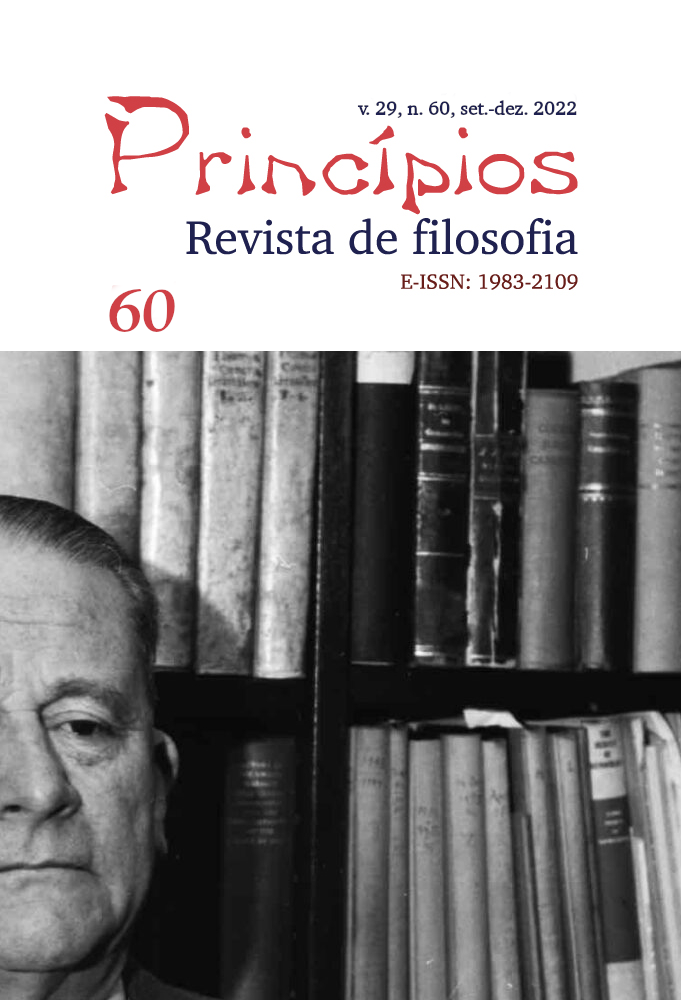Freud and disease as a destination of subjectivity
DOI:
https://doi.org/10.21680/1983-2109.2022v29n60ID26177Keywords:
Freud, Discontents, Thanatos, Human destinyAbstract
From Civilization and Its Discontents (1930), we will advocate that, if there is nothing in the culture that does not guarantee our ruin, our destiny lies in an indefinable and persistent malaise. Interrogating unknowns such as happiness, drive inhibition, destructiveness as a variant of the death drive, feeling of guilt, hegemony of the Super-Self and the triumph of Thanatos, we will see that Freud doesn’t see possibilities to cancel the situation of helplessness where we are. Since aggressiveness is one of our driving forces, we will accentuate not only the desire to exterminate everything and everyone, but the extent to which culture leads us to renounce satisfaction by suggesting a security that will never guarantee. From the lack of communion between individual and society, Thanatos' action reveals that civilization undermined from the inside. Therefore, we will see that malaise is a factor inherent to civilization, being illustrative of the current fate of subjectivity.
Downloads
References
DEIGH, J. La Ultima Teoría da la Civilización de Freud: cambio e implicaiones. In: JEROME, N. (org.). Guia de Freud. Gran Bretaña: Cambrige University Press, 1996. pp. 344-369
ENRIQUEZ, E. Da Horda ao Estado: Psicanálise do Vínculo Social. Rio de Janeiro: J. Zahar, 1990.
FREUD, S. (1913-14). Totem e Tabu. In: FREUD, S. Edição Standard Brasileira das Obras Psicológicas Completas de Sigmund Freud. Rio de Janeiro: Imago, 1969, vol. XIII.
____. (1920). Além do Princípio do Prazer. In: FREUD, S. História de uma Neuróse Infantil (“O Homem dos Lobos”), Além do Princípio do Prazer e Outros Textos. São Paulo: Companhia das Letras, 2010a, vol. XIV.
____. (1927). O Futuro de Uma Ilusão. In: FREUD, S. Inibição, Sintoma e Angustia, O Futuro de Uma Ilusão e Outros Textos. São Paulo: Companhia das Letras, 2010b, vol. XVII.
____. (1930). O Mal-Estar da Civilização. In: FREUD, S. O Mal-Estar da Civilização, Novas Conferências Introdutórias à Psicanálise e Outros Textos. São Paulo: Companhia das Letras, 2010c, vol. XVIII.
GARCIA-ROZA, L. A. Freud e o inconsciente. Rio de Janeiro: J. Zahar, 2014a.
____. Introdução à metapsicologia freudiana. Rio de Janeiro: J. Zahar, 2014b. v. III.
GEREZ-AMBERTÍN, M. As vozes do supereu. São Paulo: Editora de Cultura, 2003.
LAPLANCHE, J.; PONTALIS, J. B. Vocabulário da psicanálise. São Paulo: Martins Fontes, 1986.
PONTALIS, J.B. Perder de Vista: Da Fantasia de Recuperação do Objeto Perdido. Rio de Janeiro: J. Zahar, 1991.
RAULET, G. As duas faces da morte: sobre o estatuto da agressividade e da pulsão de morte em O mal-estar na civilização. In: LE RIDER, J.; PLON, M.; RAULET, G.; REY-FLAUD, H. (org). Em torno de O mal-estar na cultura, de Freud. São Paulo: Escuta, 2002.
REY-FLAUD, H. Os fundamentos metapsicológicos de O mal-estar na cultura. In: LE RIDER, J.; PLON, M.; RAULET, G.; REY-FLAUD, H. Em torno de O mal-estar na cultura, de Freud. São Paulo: Escuta, 2002.
ROUDINESCO, E.; PLON, M. Dicionário de psicanálise. Rio de Janeiro: J. Zahar, 1998
SILVA, M. M. Freud e a atualidade de O Mal-Estar na Cultura. In: Analytica Revista de Psicanálisa, v. 1, n. 1, pp. 45-72, dez. 2012.
TEIXEIRA, M. M. Sexo, morte e cultura: o paradoxo freudiano da moralidade. Campinas: Editora Phi, 2018.
Downloads
Published
How to Cite
Issue
Section
License
Copyright (c) 2022 Diego Luiz Warmling, Diego Rodstein Rodrigues

This work is licensed under a Creative Commons Attribution-NonCommercial-ShareAlike 4.0 International License.
Authors retain copyright and grant the journal right of first publication with the work simultaneously licensed under a Creative Commons Attribution License that allows others to share the work with an acknowledgement of the work's authorship and initial publication in this journal.


 Português (Brasil)
Português (Brasil) English
English Español (España)
Español (España) Français (Canada)
Français (Canada)


